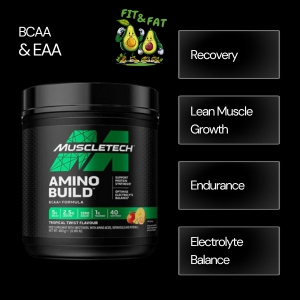Choosing the Right Supplements for Your Health Needs
When it comes to maintaining good health, a balanced diet, regular exercise, and sufficient rest are essential. However, in today’s fast-paced world, it can be challenging to get all the nutrients our bodies need from food alone. This is where supplements come in. Supplements can help fill in the nutritional gaps and support overall well-being. With the plethora of options available in the market, it can be overwhelming to choose the right supplements for your specific health needs. In this blog post, we will discuss how to select the right supplements to support your health goals.
Educate Yourself
Before adding any new supplements to your routine, it’s crucial to educate yourself about the different types of supplements available and their potential benefits. Understanding the role of vitamins, minerals, and other nutrients in the body can help you make informed decisions. You can find a wealth of information from reputable sources such as health websites, books, and professional healthcare providers. It’s important to be cautious of misinformation and always verify the credibility of the sources you consult.
Assess Your Individual Needs
Not all supplements are created equal, and not everyone requires the same set of supplements. Our individual health needs are influenced by various factors such as age, gender, diet, lifestyle, and existing health conditions. For example, a pregnant woman may need prenatal vitamins to support the healthy development of her baby, while an individual with a vitamin D deficiency may benefit from a vitamin D supplement. Consulting with a healthcare professional or a registered dietitian can help you assess your specific nutritional needs and determine which supplements, if any, are right for you.
It’s important to note that while supplements can be beneficial for addressing specific deficiencies or supporting overall health, they are not a substitute for a balanced diet. Whenever possible, obtaining nutrients from whole foods should be the primary goal, with supplements serving as a complement to fill in the gaps.
Quality Matters
When shopping for supplements, quality should be a top priority. The Food and Drug Administration (FDA) does not regulate supplements as strictly as pharmaceuticals, so it’s essential to choose products from reputable brands that adhere to good manufacturing practices. Look for supplements that have been tested by third-party organizations for purity and potency. Additionally, checking for certifications such as NSF International, USP Verified, or GMP (Good Manufacturing Practice) can provide assurance of quality.
Reading the product labels is also crucial in assessing the quality of supplements. Look for transparent labeling that provides information about the active ingredients, serving size, and other added ingredients. Avoid supplements that contain unnecessary fillers, additives, or allergens that you may be sensitive to.
Consider the Form of Supplements
Supplements come in various forms, including capsules, tablets, softgels, powders, and liquids. The form of the supplement can impact its absorption and effectiveness in the body. For example, liquid supplements may be more readily absorbed than tablets or capsules for some individuals. Consider your personal preferences and any potential challenges you may have with swallowing or digesting certain forms of supplements. If you have difficulty swallowing pills, for instance, liquid or powdered forms may be more suitable for you.
Understand Potential Interactions and Side Effects
Before incorporating new supplements into your routine, it’s important to be aware of potential interactions with medications or other supplements you may be taking. Certain supplements can interact with prescription medications, affecting their potency or causing adverse effects. Always consult with your healthcare provider to ensure that the supplements you plan to take are safe and compatible with your current medications or medical conditions.
Additionally, familiarize yourself with the potential side effects of the supplements you are considering. While natural does not always mean safe, it’s important to be cautious of any adverse reactions that may occur. Being informed about potential side effects can help you monitor your body’s response to the supplements and take appropriate action if necessary.
Monitor Your Progress
Once you have selected and started taking supplements, pay attention to how your body responds. Keep track of any changes in your energy levels, mood, digestion, or any specific health concerns you are targeting with the supplements. It’s essential to give your body sufficient time to adjust to the supplements and assess their impact. If you experience any unexpected symptoms or discomfort, discontinue the supplements and consult with a healthcare professional.
Conclusion
Choosing the right supplements for your health needs requires careful consideration of individual requirements, product quality, potential interactions, and personal preferences. By educating yourself, seeking professional guidance, and being mindful of quality and safety, you can make informed choices that support your overall well-being. Remember that supplements should complement a healthy lifestyle and balanced diet, and they are not a cure-all solution. When in doubt, always consult with a healthcare provider before making significant changes to your supplement regimen.





